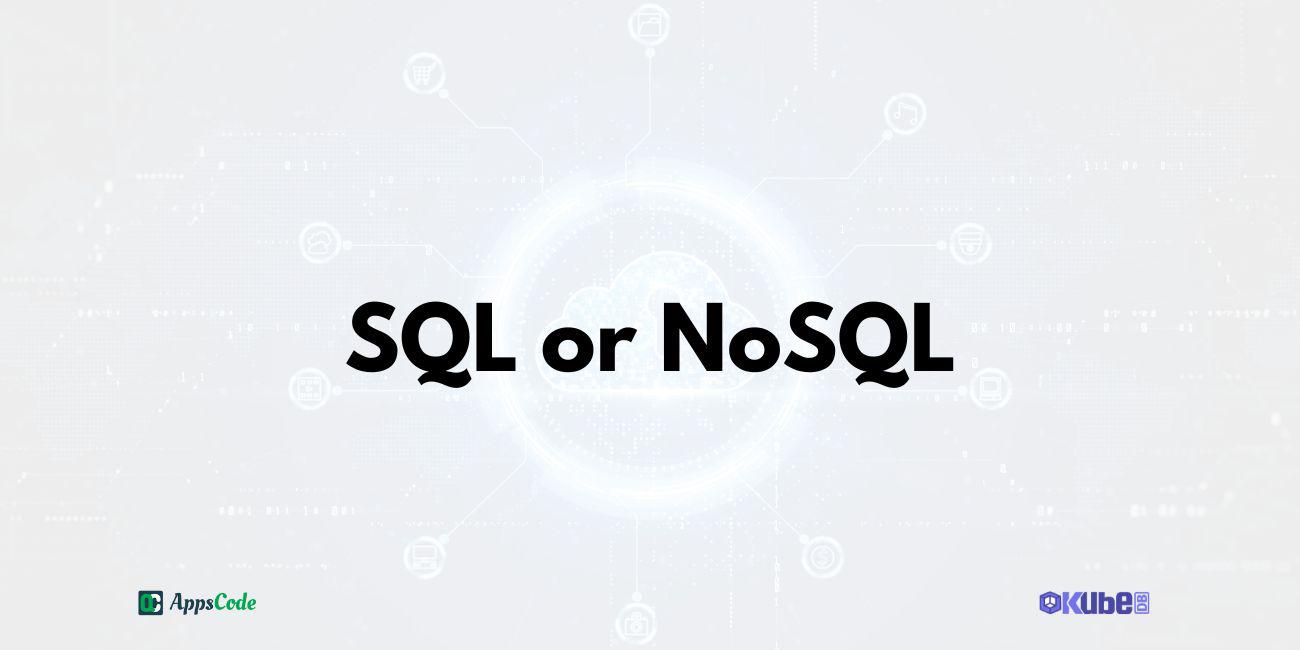
Overview
Databases are a fundamental component of modern software applications, Providing a foundation for data storage, management, and retrieval. Two primary types of databases used in modern applications are SQL and NoSQL. SQL databases use a structured, relational method to store data in tables with columns and rows, whereas NoSQL databases use a non-relational, document-oriented approach to store data in flexible data models such as key-value pairs or document stores. The decision between SQL and NoSQL databases can have a major impact on the performance, scalability, and cost of your application. In this post, we will analyze the fundamental differences between SQL and NoSQL databases and assist you to select the appropriate database solution for your application.
SQL Architecture
SQL databases are structured and built on a relational architecture, which means they use tables to store data. Each table has a sequence of rows, and each row represents a database entry. The attributes of the record, such as name, age, and address, are represented by the columns in the table. SQL databases are extremely structured, and data is usually standardized to eliminate redundancy and improve data integrity. SQL databases are capable of handling complicated queries and transactions, as well as providing excellent support for data integrity and consistency.
NoSQL Architecture
NoSQL databases store data using a variety of data models, including key-value pairs, document stores, and graph databases. Several NoSQL databases employ a key-value store, where data is kept as a group of key-value pairs. Using document stores, which have a hierarchical structure for storing data that is comparable to a file system. Graph databases utilize nodes and edges to express data relationships. NoSQL databases are built to be very versatile and adaptable, allowing them to adapt to changing data models and requirements. They are ideal for applications that require quick access to large volumes of unstructured or semi-structured data, such as social networking platforms or Internet of Things applications.
Benefits and Use Cases of SQL
- SQL databases are ideal for financial applications and e-commerce websites because they can manage complicated queries and transactions and offer good support for data integrity and consistency.
- It is simpler to find developers with SQL experience due to the widespread adoption of SQL and the highly standardized and recognized nature of the structured query language.
- SQL databases are extremely dependable, with excellent support for data integrity and consistency ensuring that data is always correct.
SQL databases are ideal for use cases where:
- Data is extremely structured and demands complex queries and transactions.
- Strong data consistency and integrity are essential.
- The application is anticipated to experience frequent schema modifications.
Benefits and Use Cases of NoSQL
- NoSQL databases are frequently more flexible and easy to scale horizontally, making them suitable for applications that require great scalability, such as social networking platforms or IoT applications.
- NoSQL databases allows fast access to huge amounts of unstructured or semi-structured data, making them useful for applications that require fast data retrievals, such as real-time analytics or machine learning.
- NoSQL databases are highly adaptable and can adapt to changing data models and needs, making them suitable for applications that need rapid changes, such as agile development.
NoSQL databases are ideal for use cases where:
- Data is unstructured or semi-structured and needs to be accessed quickly.
- High scalability is necessary.
- The application is likely to change frequently.
Differences Between SQL and NoSQL
Data Structure
SQL databases use a structured, tabular format, whereas NoSQL databases utilize a range of data formats such as key-value pairs, document stores, and graph databases.
Scalability
NoSQL databases are frequently more adaptable and simpler to scale horizontally than SQL databases, however both can be highly scalable.
Complexity
SQL databases are often more sophisticated and require more prior planning and design, whereas NoSQL databases are more adaptable and can accommodate changes more easily.
Query Language
SQL databases utilize a highly standardized and commonly recognized query language, while NoSQL databases frequently use a range of query languages, each with its own syntax and semantics.
Conclusion
Choosing the best database for your system is dependent on a number of aspects, including your data model, scalability requirements, and performance requirements. Applications requiring complex queries and transactions should use SQL databases, but those need quick access to vast amounts of unstructured data should use NoSQL databases. By understanding the differences between SQL and NoSQL databases can help you to make preffered choices for your system.
KubeDB Can Assist
It takes an extensive understanding and consistent practice to manage your organization’s database operations, whether they are on-premises or in the cloud. Your application performance may be impacted by the kind of open-source database you choose. You must determine which open-source database will best match for your apps and services, your infrastructure, and your clients before making your selection. To ensure your DBA expertise with the necessary performance and uptime criteria, KubeDB provides a complete support solution. We have a 24x7 support system and maintain SLA to provide 100% reliability to our clients. No matter if your database infrastructure is hosted on-site, geographically localized, or if you use cloud services or database-as-a-service vendors, KubeDB will assist you to manage this whole process in a production-grade environment. Learn more by watching tutorials about different popular databases
Support
To speak with us, please leave a message on our website .
To receive product announcements, follow us on Twitter .
To watch tutorials of various Production-Grade Kubernetes Tools Subscribe our YouTube channel.
More about Production-Grade Databases in Kubernetes
If you have found a bug with KubeDB or want to request for new features, please file an issue .









